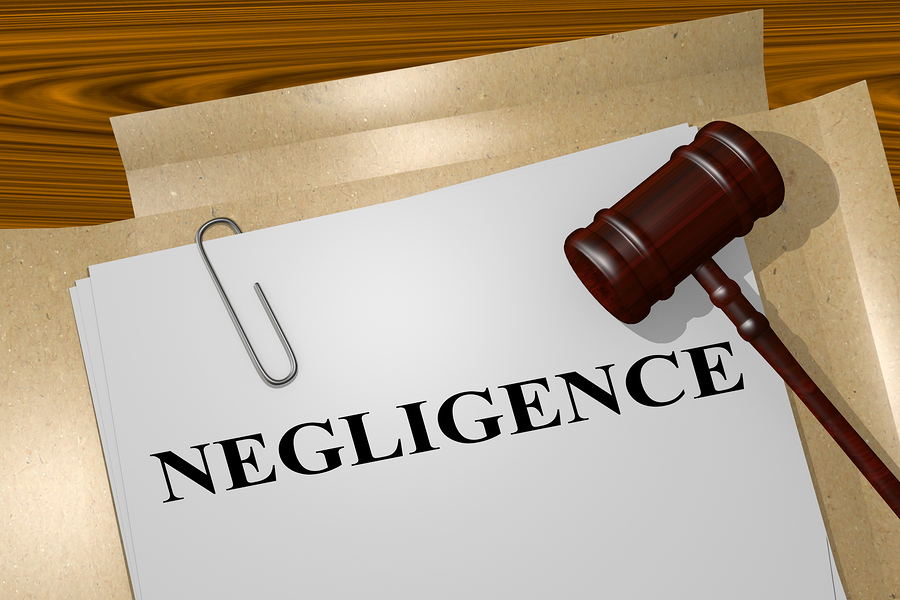Defining Negligence In Premises Liability
 Michael Babboni
Premises Liability
A premises liability is a type of civil lawsuit where a person, or people, are injured on someone else’s property, and the owner of the property is somehow responsible. If you find yourself in a situation where you have an injury that can require substantial medical treatment, such as slipping and falling on the floor, or even suffering a broken limb due to riding on a defective amusement attraction, it’s unfair to expect that you should also bear the financial burden of paying for medical treatment that isn’t even your fault. If your injury leaves you unable to work while you recover, or even makes it impossible for you to return to your old job, then your long term future and finances have become jeopardized as well.
Michael Babboni
Premises Liability
A premises liability is a type of civil lawsuit where a person, or people, are injured on someone else’s property, and the owner of the property is somehow responsible. If you find yourself in a situation where you have an injury that can require substantial medical treatment, such as slipping and falling on the floor, or even suffering a broken limb due to riding on a defective amusement attraction, it’s unfair to expect that you should also bear the financial burden of paying for medical treatment that isn’t even your fault. If your injury leaves you unable to work while you recover, or even makes it impossible for you to return to your old job, then your long term future and finances have become jeopardized as well.However, you can’t just go to the person or company that may be responsible and ask them, directly, for financial compensation. In most cases, the companies will be unwilling to do so simply on request, and even in rare occasions when they are, there is still a matter of making such a transaction legal and on record in order to make sure that everything is recorded, documented and approved.
For those times when a company or property owner claims that there was no fault on their part, that’s when a lawsuit is required. And the lawsuit must prove one thing in order for you to get the legal resolution you need from your personal injury lawyer in St. Petersburg. You need to prove a legal status known as negligence.
Carelessness That Carries A Cost
Negligence is the critical legal cornerstone to getting a successful lawsuit with a jury verdict in your favor. While negligence itself is just a concept, it requires evidence that must be compelling enough to convince a jury that your argument is sound.
In the legal sense, negligence means that a property owner is aware that some aspect of the property has an obligation to maintain, but chooses not to do anything about it, either because of not wanting to waste time, money, or a combination of different factors. The key, central idea, however, is that the property owner, or the staff for which the property owner is ultimately responsible, knew that a responsibility existed, but deliberately chose to ignore that responsibility, failing to consider the risks.
In order to take a premises lawsuit to a successful conclusion, your personal injury lawyer in St. Petersburg will work with you to gather the proof you need to show in court. Depending on the type of situation and injury you experienced, that proof may come in a variety of different ways.
For example, if you slipped and fell on some motor oil that had spilled on the floor of the car repair garage you were visiting, you would need proof that the spill had been there for quite some time and been ignored. If there was a closed circuit security camera that had been watching the area, you might have all the proof you need in that recording. If the recording can be sourced, and it is revealed that the spill had been there for hours before you slipped on it, that’s critical evidence. The fact that a camera recorded the spill being present for hours means that the staff had every opportunity to clean up such a physical risk before you arrived. The fact that they didn’t is the confirmation of negligence at work.
On the other hand, if you claim that you slipped on motor oil and that should have been cleaned up well before you arrived, and security footage proves otherwise, you don’t have a case. For example, in this specific situation, if you were opening the can of motor oil yourself, out of curiosity, and then fumbled the can so that the oil spilled, and you slipped and fell due to that, there’s not much of a case present. The fact that you opened the can of motor oil and then immediately fell due to that spill means that no human being could reasonably appear, with the proper cleaning implements, and wipe up the mess, then dry the floor while you were in the process of slipping.
Evidence Is Crucial
It’s important to always stand up for yourself and not let responsible parties evade their legal obligations to you. But in order to hold these people accountable, you and your personal injury lawyer in St. Petersburg must be able to prove negligence was at work in the case. With solid proof of negligence, it may even be possible to avoid a confrontation in court, as strong evidence can convince a responsible party that settling out of court is more expedient and less harmful for everyone concerned.
